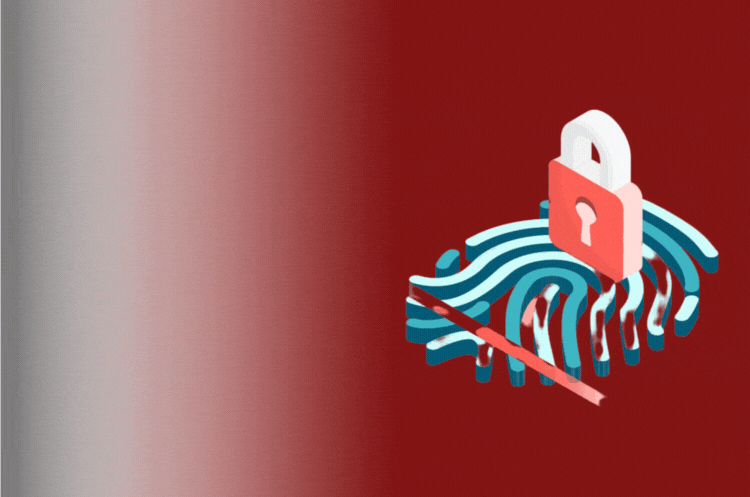
Building a Trustworthy Online Identity: Proving Your Authenticity in the Digital Realm
Introduction
In the ever-expanding realm of the digital age, there’s a saying that seems to echo in the corridors of cyberspace: “On the Internet, nobody knows you’re a dog.” This whimsical adage was coined years ago as a humorous reflection of the anonymity that the internet offers. While this level of anonymity has its merits and demerits, it takes on a unique significance when we consider the challenges of building and maintaining a trustworthy online identity.
The Enigma of Online Identity
In the vast and interconnected world of the internet, it can be a formidable task to determine whether a website or social media channel is genuinely what it claims to be. This dilemma is one that has plagued the online community from its inception. Think back to the early days of the internet, where the scramble for domain names was a virtual gold rush. This era was also characterized by the notorious practice of “cybersquatting,” in which individuals or entities secured domain names that well-known brands desired.
As the internet evolved and social media platforms emerged, the problem persisted, and in some cases, intensified. The issue at hand is not confined to the past; it continues to haunt numerous businesses and individuals in the present day. For instance, tech giants like eBay find themselves in constant battles against counterfeit websites that aim to defraud their customers by capitalizing on their trust in the eBay brand.
However, this is not a problem limited to high-profile corporations alone. Even small to medium-sized businesses grapple with the issue of customers struggling to distinguish genuine online sites and channels from their impostors. In some unfortunate cases, even competitors can inadvertently benefit from the confusion that ensues when customers cannot reliably identify the real deal.
Confronting the Impersonation Challenge
One method for tackling these challenges head-on is to pursue legal action against cybersquatters and look-alike sites or channels. While this approach is legitimate, it is often a protracted, costly endeavor, and it does not come with a guarantee of success. This is especially true when dealing with look-alike sites hosted in other countries, where the local hosting companies and authorities may have little interest in assisting in your pursuit of justice.
Furthermore, if the issue involves the theft and re-publication of your personal information on other platforms, you should be aware that Google provides steps to remove such data from its search results. These measures can be invaluable in certain circumstances.
However, it’s essential to recognize that taking action against fake sites alone can sometimes feel like an endless game of “whack-a-mole.” Therefore, while legal action is an option, it should be considered as part of a broader strategy.
Constructing Trust Through a Centralized Online Presence
The most effective approach to establishing trust in your online identity is to provide your customers with a single, authoritative resource on your website. This resource should serve two critical functions:
Consolidating your marketing channels: By bringing together all your online marketing channels in one place, you not only verify their authenticity but also enhance their visibility in search results when users search for your brand name.
Creating trust-driven user journeys: This resource should empower visitors to verify your online identity, explore your social profiles, and gain confidence in your business. This, in turn, leads to increased time spent on your site and a greater likelihood of generating leads.
Consider augmenting this resource with features such as smart CTAs, which are powered by AI technology. These smart CTAs can offer personalized assistance to customers when needed, providing a more interactive and user-friendly experience. Examples of such technology include smart chatbots and Interactive Voice Response (IVR) systems, both of which can help create personalized CTAs to boost engagement from your brand-driven assets and channels.
Furthermore, organizing your online presence and incorporating links to major channels throughout your website, including in the footer, can improve your brand’s visibility in Google search results and make your channels more accessible to visitors.
Verifying Your Social Media Channels

Major social media platforms have introduced verification processes to help you maintain ownership of your brand name and confirm the authenticity of your online presence. From Instagram to Facebook, there are plenty of ways of getting verification done!
Conclusion
Online identity remains an area where internet security often lags behind the rapidly evolving digital landscape. Whether you are a major corporation like eBay or a smaller enterprise, proactively building an authoritative and trustworthy page for verifying your online presence is a prudent move.
By educating your customers and website visitors on where to locate and verify your online channels from the outset, you instill practices that can safeguard both your interests and those of your audience. In an ever-evolving online world, an ounce of prevention can be worth a pound of cure.
Reputation Management Services: Trust in Build Brand Better
At Build Brand Better, we understand the critical importance of maintaining a pristine online reputation in today’s digital landscape. Our mission is to be your trusted partner in helping individuals and businesses not only build their online presence but also safeguard it against the ever-present challenges of the internet. With a proven track record of excellence, we offer a comprehensive suite of reputation management services that are tailored to meet your unique needs.
Discover the difference with Build Brand Better, where your reputation is not just managed; it’s meticulously crafted and protected. Contact us today to schedule a free reputation consultation and take the first step toward building a robust and unassailable online identity.
FAQ
- Why is building a trustworthy online identity important?
Answer: Building a trustworthy online identity is crucial because it helps establish credibility and authenticity in the digital world. Trustworthy online identities can attract more customers, boost brand reputation, and protect against impersonation or online scams.
- How can I verify the authenticity of a website or social media channel?
Answer: You can verify the authenticity of a website or social media channel by looking for verification badges or checkmarks offered by major platforms like Facebook, Twitter, Instagram, and LinkedIn. Additionally, websites should have clear and consistent branding that matches their official offline identity.
- What are the benefits of consolidating marketing channels on my website?
Answer: Consolidating marketing channels on your website helps verify their authenticity and improves your brand’s visibility in search results. It also provides visitors with a central hub to explore your online presence, enhancing trust and increasing leads.
- How can I use AI technology to improve user engagement on my website?
Answer: You can leverage AI technology, such as smart CTAs (Call to Action), to offer personalized assistance to website visitors. Smart chatbots and Interactive Voice Response (IVR) systems are examples of AI-powered tools that can engage users, answer queries, and guide them through your website.
- What steps can I take to prevent identity theft or misuse of my online presence?
Answer: Educate your customers and website visitors about where to find and verify your official online channels. Establishing clear practices from the beginning can help prevent identity theft or misuse in the future. Being proactive in building trust is key.
For more Blogs:– www.buildbrandbetter.io/blog/
